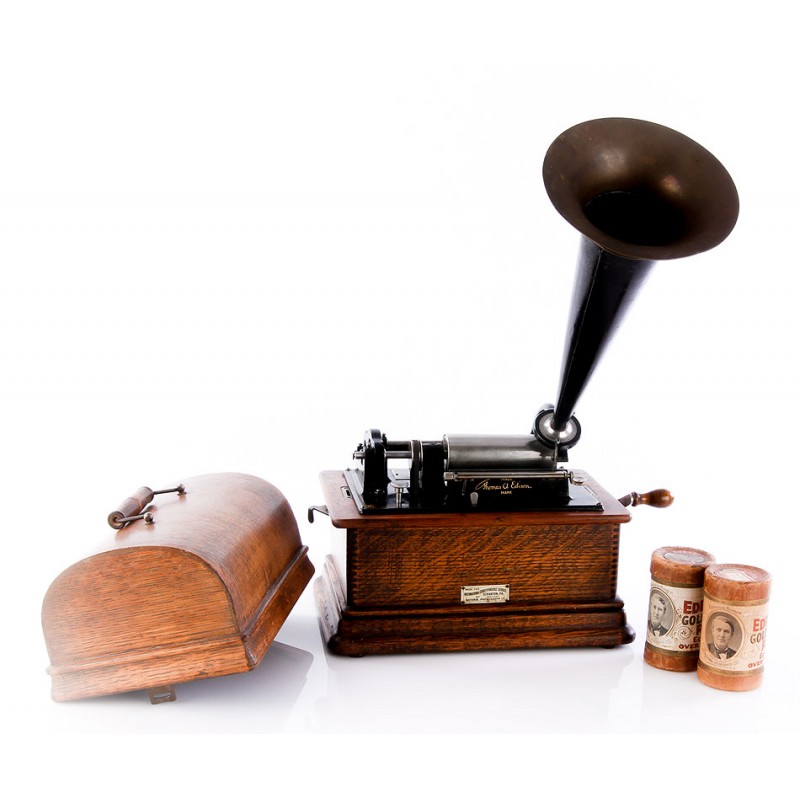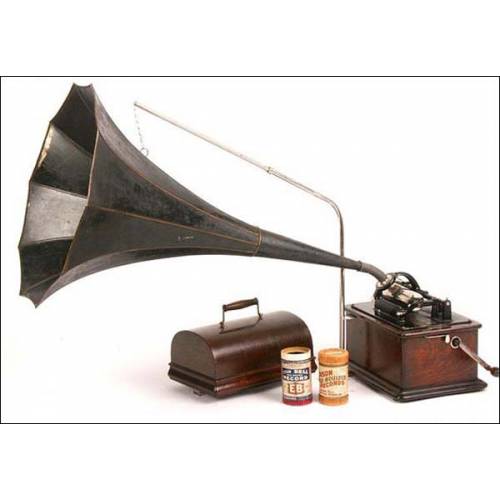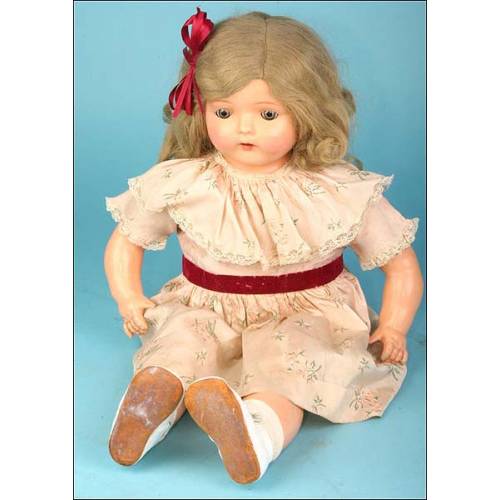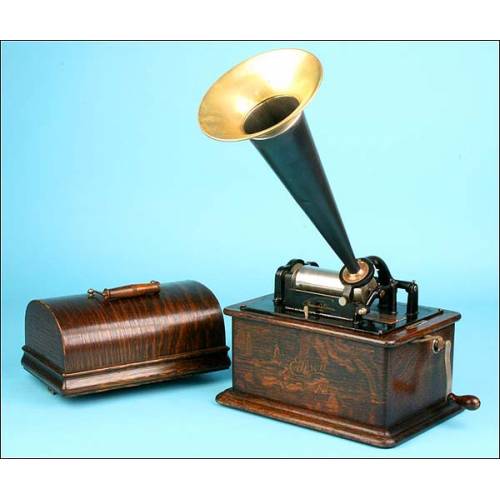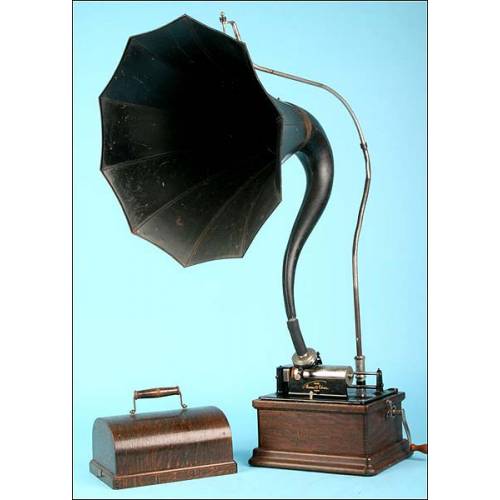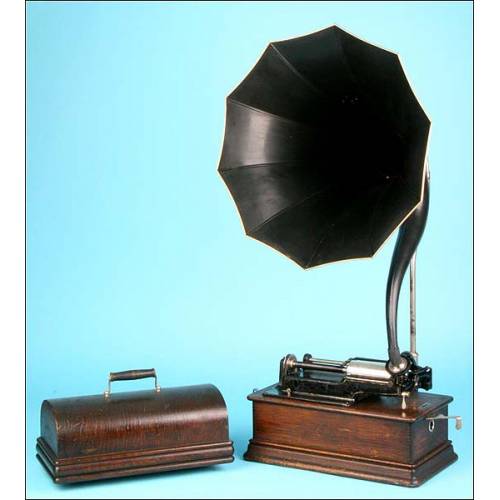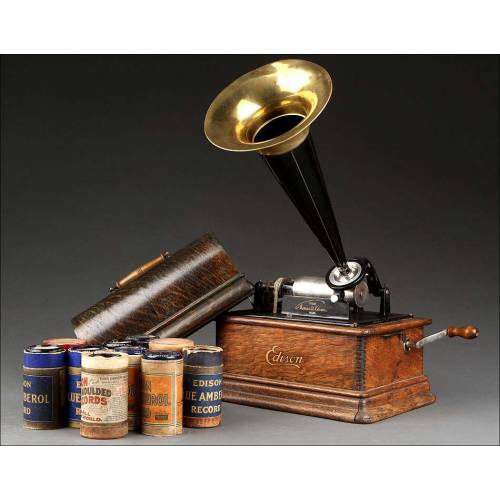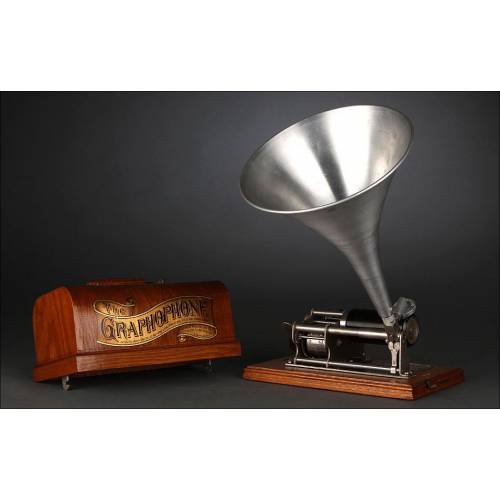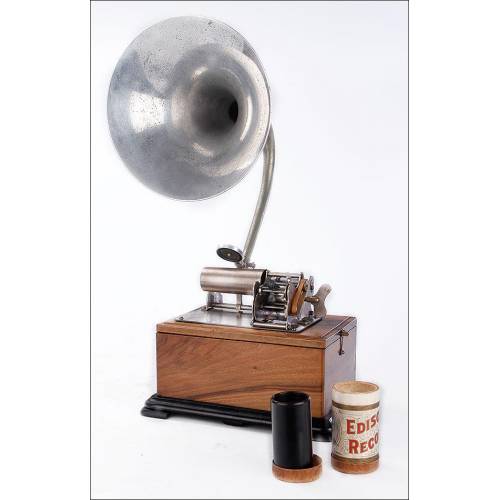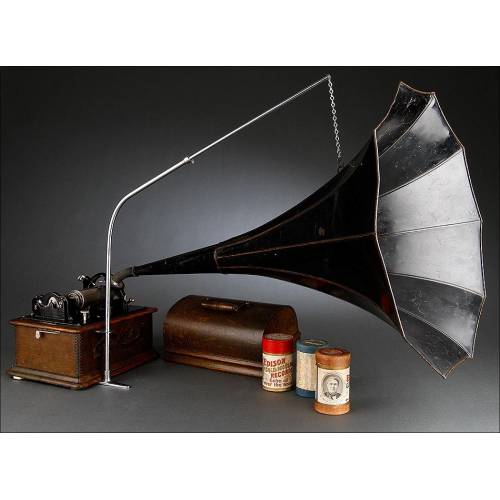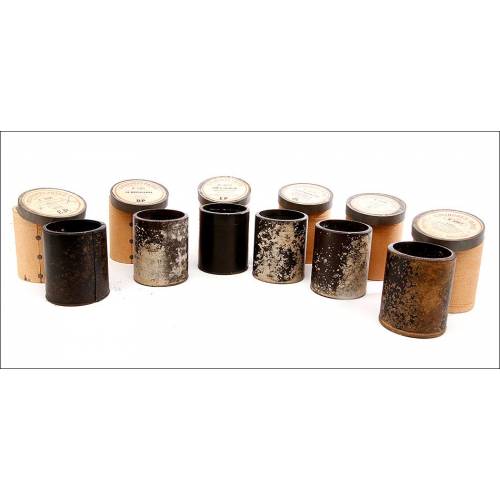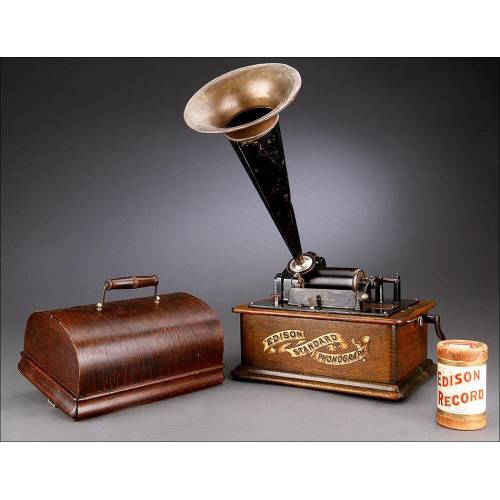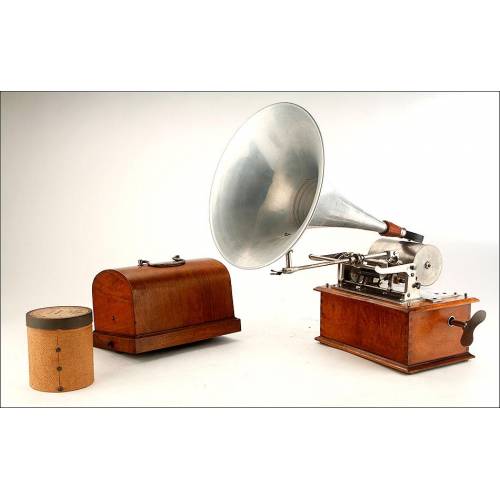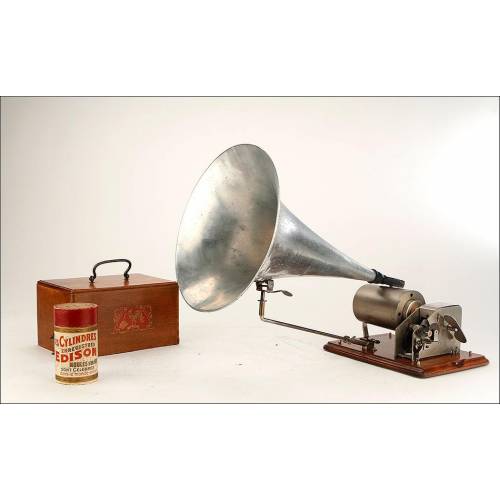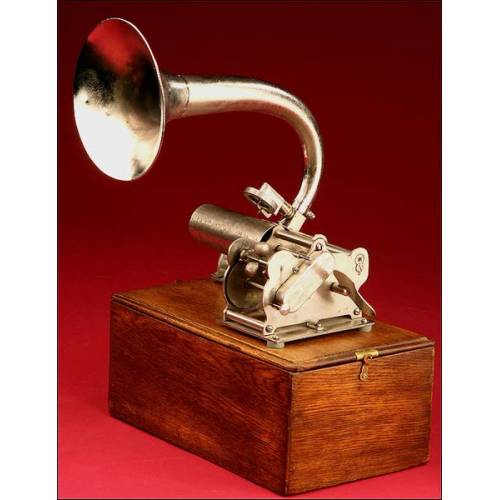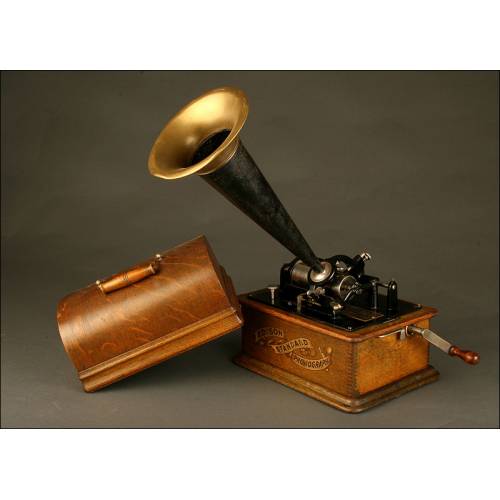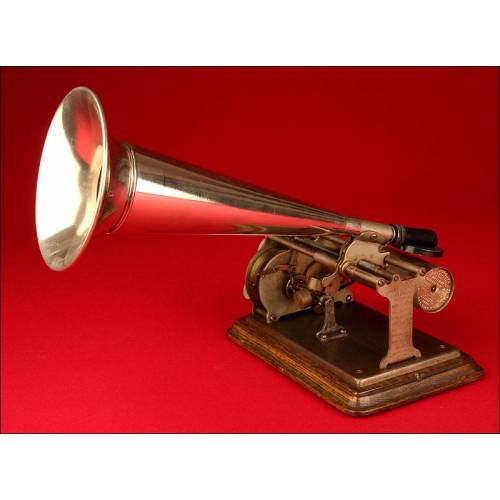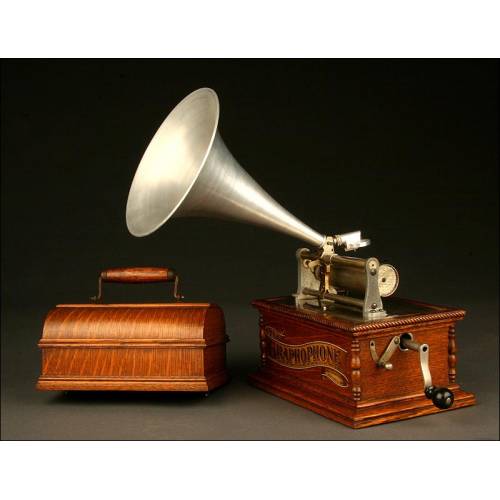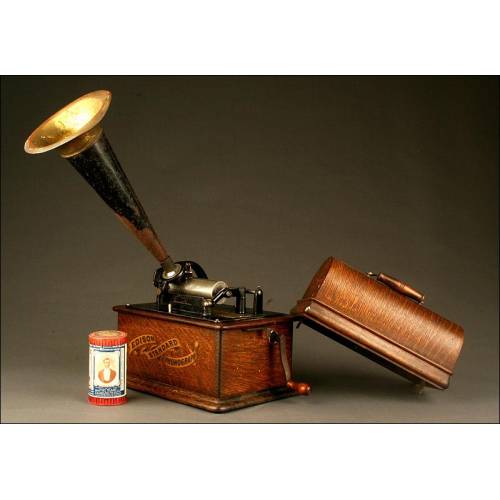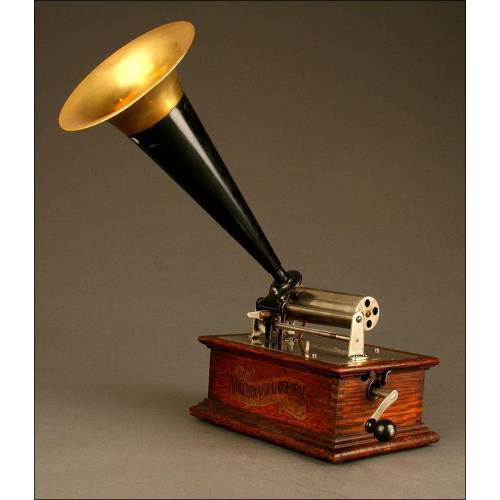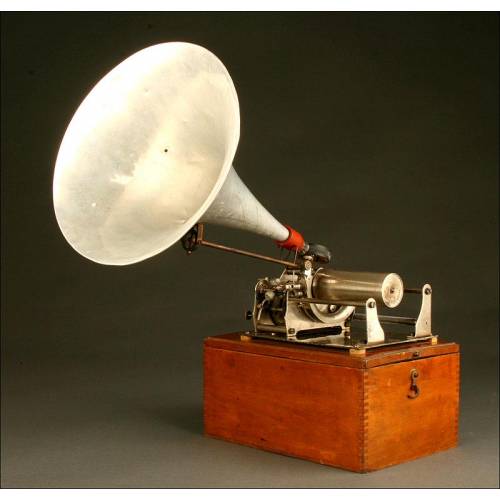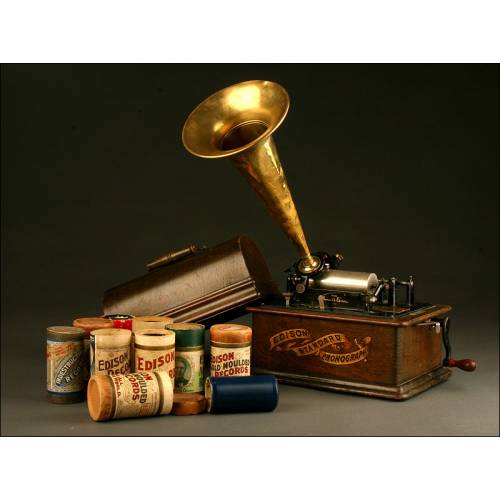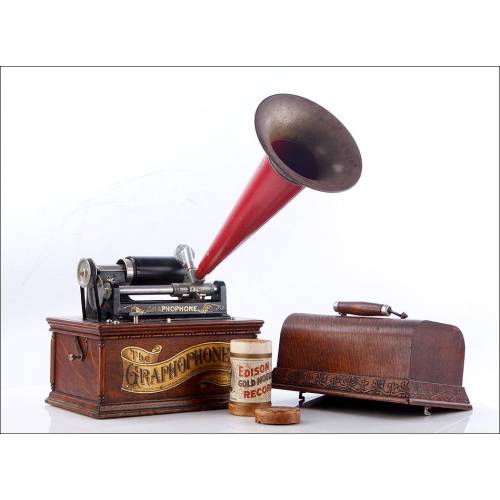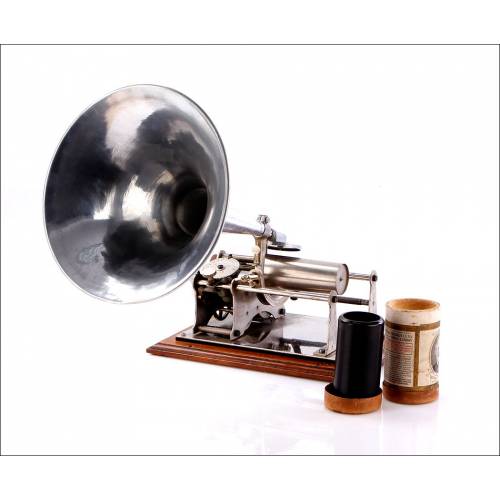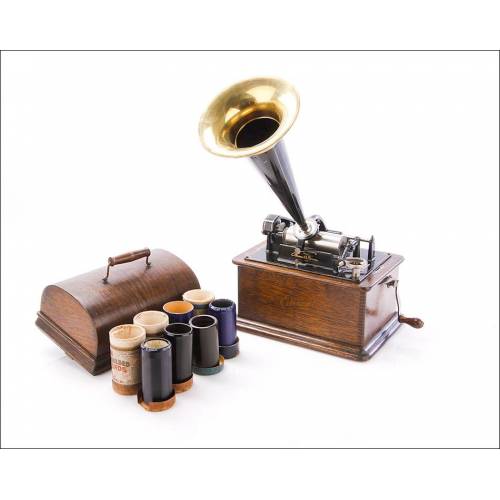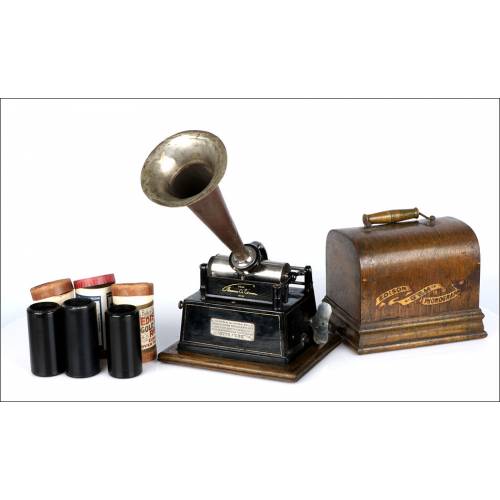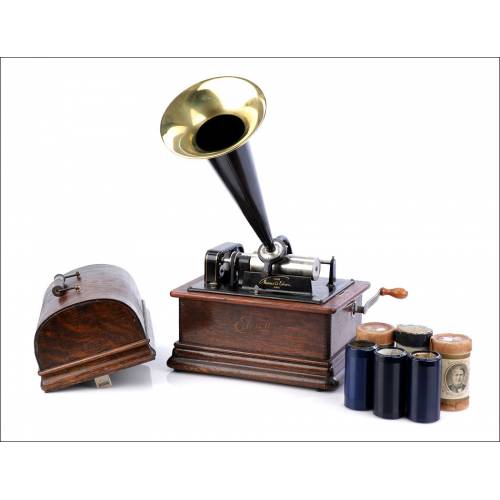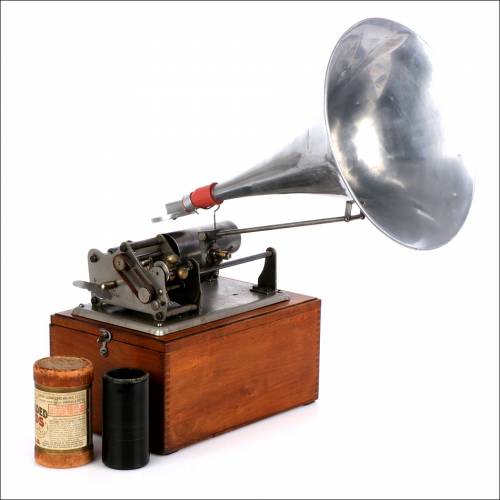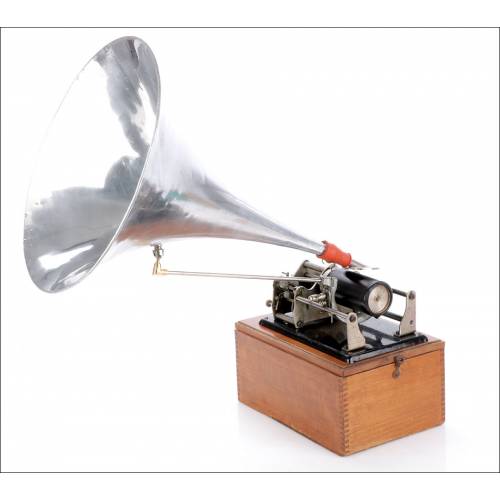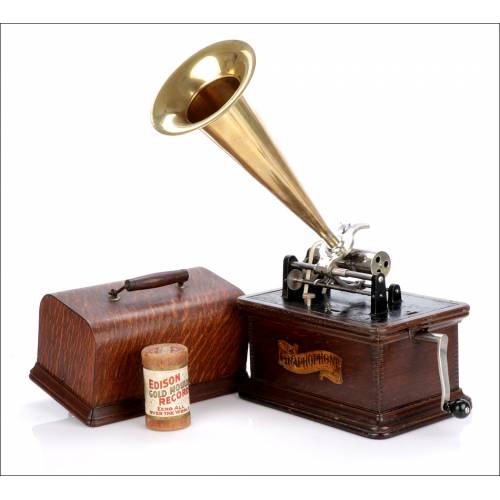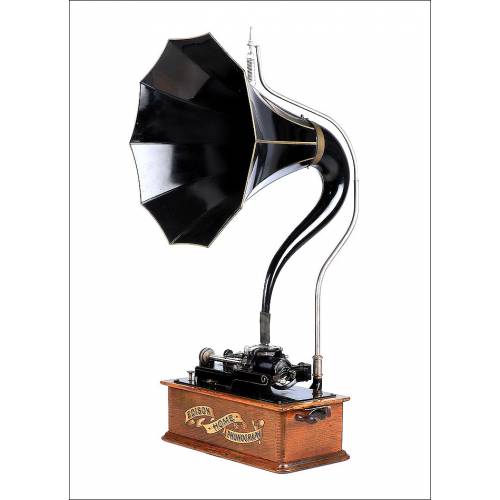C-087
Antique Edison Standard C Phonograph, Complete. Working. USA, Circa 1905
Original Edison Standard C phonograph in very good condition. Works like a charm.
Sold!
Attractive antique Edison Standard C phonograph, original from the period and in magnificent condition. This phonograph is designed to play 2-minute cylinders, mounts the original horn and comes with two Edison Standard cylinders to be played. The phonograph has been thoroughly restored and shows of an almost flawless condition, with the remarkable beauty that ancient oak wood provides to its design. On the other hand, the motor has also been cleaned and overhauled so we can guarantee that this phonograph works fine and provides a neat and clear sound. As stated before, the box is made of solid oak wood. It is rectangular in shape and has molded top and base. The cover is also made of curved oak wood and is designed to protect the device when not in use, hiding the turntable, the tone-arm and the horn. The top handle makes it possible to carry it comfortably. The box bears a riveted bone-colored plate with an inscription indicating that the phonograph was made by the National Phonograph Co. for international correspondence schools. The item bears the manufacturers signature, Thomas A. Edison MARK, engraved in golden lettering on the black-lacquered finish. There is also a metal plate with the engraved patents and model (C). The phonographs horn, original from the period, is made of black-lacquered metal and brass and remains in great condition too. For its striking beauty and wonderful sound, this Edison Standard C phonograph is a historic item, a highly interesting piece for collectors and music lovers.Edison Bell Phonograph Co. History The Edison Bell Phonograph Company was founded in 1893 after purchasing three key patents for the manufacture of Edison phonographs and cylinders. The company stablished in the Edison House in London and kept a 10 year monopoly of the phonograph trade. Soon illegal competitors emerged and created a booming trade, among them James E. Hough who was forced by Edison Bell to abandon his trade. Then Hough negotiated a deal with the firm so he could keep on trading through the Edisonia company, founded in 1897. Edison Bell and Edisonia merged in 1898 and created the Edison Bell Consolidated Phonograph Co, Ltd.; the firm kept overall control over the phonograph and cylinder trade till 1902, when the patents expired. They produced their lasts phonograph cylinders in 1914; after this year, only gramophones and records were manufactured. The firm kept on in business until 1931.

